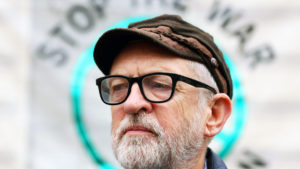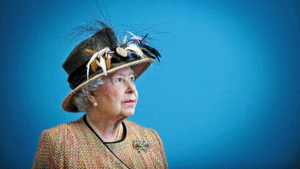It is perhaps not seemly to dwell on the failures of Elizabeth II during the Platinum Jubilee, but they are here, flotsam around the ship. Monarchy is a shared national delusion: that we are special because we have a witch-goddess of ancient lineage and the French have Emmanuel Macron.
When has she come closest to peril? That’s easy, in your royal pub quiz: the death of Princess Diana. But why did she come so close? Because the royal family were not emotionally responsive when Diana died? Because they did not lower the flag, or leave the castle to meet their desolate people? Nonsense: this was an act of projection, of guilt buried under the anti-Jubilee of a death.
We understood why the monarchy shook when Diana died: because she died, because she married into a family that is dysfunctional, because we like it that way. Diana was not gilded by her status. She was killed by it. Her marriage was arranged when she needed a love match, and in that brief burst of understanding was our grief. Or it should have been.
Now Tina Brown’s The Palace Papers is here, and it adds detail to the groaning library of royal biography, which is an odd genre prone to be read not with understanding but with glee. Because if you understand you can’t go on with the game. Brown divides the royals into functional and dysfunctional: good and bad. I am more cynical: I divide them into victims and survivors.
The victims pile up with their awful testimony: who survives this family? Not Edward VIII, possibly a Nazi-sympathiser. But he wanted something less suffocating than a crown and married a woman who gave him less. The Queen Mother responded to his gift by telling people Mrs Simpson was a prostitute and denying her the title HRH. She was a sore winner but for some people nothing is ever enough. Brown speaks the party line here. The family, “always believed that it was the excess public attention that had promoted Edward’s delusion of outsize significance and the coddling of dangerous emotional needs”.
There is Margaret, denied the man she loved, and by her sister, who then deceived herself about the cause of Margaret’s depression: because the Queen is a survivor. “Once,” writes Brown, “when one of Margaret’s inner circle called her to say her sister was threatening to throw herself out of the bedroom window the Queen replied, ‘Carry on with your house party. Her bedroom is on the ground floor’”. That’s a cold response to suicidal ideation. Margaret married a monster on the rebound and filled herself with fags, Famous Grouse, and nothing. When it was suggested to the Queen that a therapist might help her sister, the Queen replied, “Perhaps when she’s better we could consider that”. “It was one of her lifelong dreams to ride on a bus,” writes Brown sadly of Margaret, but I doubt it would have saved her, even if she had become a conductress. Margaret’s desire to be cremated at Slough was her personal elegy, made with apt disgust.
There is Charles, who lacked the words and the expectation of sympathy to tell his mother what he wanted — a wife he loved. There was Diana, a corpse, and Fergie, a tabloid headline, who cannot leave and cannot stay. She is trapped in the carpeted purgatory of her ex-husband’s home Royal Lodge, a dystopia with a vast TV on which they can watch the news that consumes them.
Both Andrew and Harry are victims of monarchy too: of Elizabeth’s dedication to the Edwardian style, which is tight-lipped, hierarchical, and filled with superficial morality. I suspect we need a more casual style of monarchy — that is what Harry howls for from California — but perhaps they think we will not accept a monarchy without the suffering that we impose on it? There are reasons why Elizabeth has been a successful queen beyond longevity: she placed it first, and not all the children thrived. One lost second son is a misfortune. Two is a pattern.
Andrew grew up to know that he is not as important as his older brother and the Queen, when she was present — she often wasn’t, she once returned from a royal tour and went straight to the races, not her children — presided over this. That’s male primogeniture for you. Winner takes all. It must be a canker unless you are peculiarly mentally healthy, even before you meet your mad acolytes.
If you feel yourself aggrieved, you may give yourself permission to behave as you wish. You will not open your own curtains. This is the testimony of a maid who hated Andrew because he made her climb the stairs to open his curtains. (It is impossible to believe that he is not addressing his mother.) You will call your wife, as Brown relates, “a fat cow”. You will have a collection of teddy bears, carefully arranged by the maid that hates you, even in your fifties, and yet imagine that you are really a naval officer. (Charles travels with a teddy bear according to Brown, but just the one). You will think, at best, that a trafficked 17-year-old will want to have sex with you because you are the Duke of York.
Then there is Harry. I used to think he left for privacy. Now, as he wades through autobiographies, Netflix deals and self-deception, I don’t think he left at all. Like Edward VIII, monarchy obsesses him; he can’t leave any more than Margaret or Sarah could. Attention without merit is addictive. Brown is fascinating on Harry and Meghan. “So why,” she asks, “didn’t Harry help navigate palace culture for his future wife? He didn’t want to. Their complicity required Meghan to fight all the norms she had kicked against for so long. She was now his comrade in arms”. On Suits, she notes, Meghan was sixth on the call-sheet. In the royal family, Harry is sixth on the call sheet. They meet there, thwarted.
The two things that threaten the Jubilee — Andrew’s self-absorption and Harry’s rage — are entirely self-made. I know it isn’t kind to call a witch-goddess a bad mother, but perhaps you can’t mother a nation and your real children too. I wonder if they acknowledge it themselves. Charles’s plan to “slim down” the monarchy to himself, William, a middle-class woman and three children under nine, looks less like policy than testimony: a moment of self-knowledge and self-preservation before it all ends.
Disclaimer
Some of the posts we share are controversial and we do not necessarily agree with them in the whole extend. Sometimes we agree with the content or part of it but we do not agree with the narration or language. Nevertheless we find them somehow interesting, valuable and/or informative or we share them, because we strongly believe in freedom of speech, free press and journalism. We strongly encourage you to have a critical approach to all the content, do your own research and analysis to build your own opinion.
We would be glad to have your feedback.
Source: UnHerd Read the original article here: https://unherd.com



